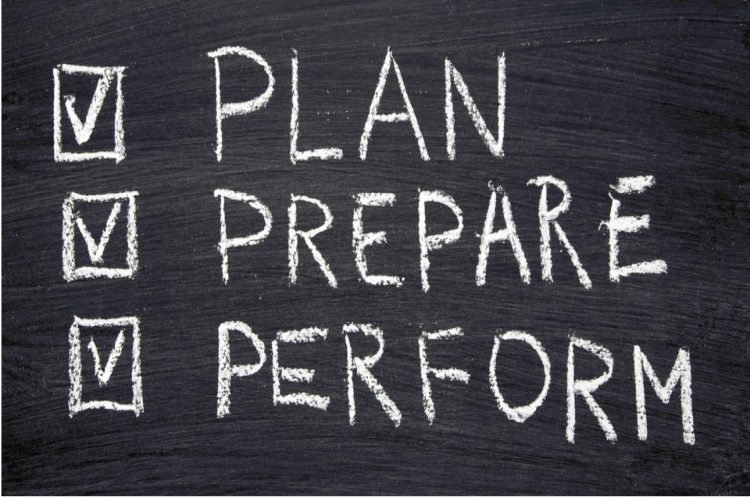
How to prepare for your job interview
At few times in the past decade has performance in interviews mattered so much. A decline in the number of positions on offer and a rise in unemployment mean competition for jobs is intense.
But there’s no need to fret. With the right approach you can be your very best in interviews and even enjoy the process. Follow these five steps, starting with changing your mindset.
1. Get your head right
An interview is simply a conversation between people who have a mutual interest in a job. The interviewer, or panel, wants to find someone and you want the job. It is as simple as that.
Try to think of the interview as a conversation with friends, a chat. Think of an interview as a rare, but welcome, opportunity to bang on about yourself.
2. Prepare
Read all information you have on the job and the company and memorise as much as you can. Use this information when answering interviewers’ questions to demonstrate you’re familiar with the role you’re applying for and the company.
Work out what you want to say at the interview, including specific questions about the job. You should include a number of questions that don’t necessarily relate directly to your role in the job, such as general queries about the company.
Ensure you have enough money to get a cab to the location in case the train or bus is cancelled or your car’s engine blows up. Pack an umbrella, tissues and tights to avoid the mud-splattered look.
3. Think presentation
Wear what the employees at your would-be workplace wear or, even better, something a notch or so smarter. Your clothes and accessories should always be understated. Lose the jangly jewellery, Disney cartoon ties, loud socks and plunging necklines.
Nor should you go in smelling like a pair of old socks or go overboard with the aftershave or perfume. If, like me, you approach your wardrobe each day with trepidation that there’ll be anything that fits or is still remotely in fashion, now is the time to buy something that does fit. Don’t wear dark-coloured shirts as they highlight sweat.
Researchers at Harvard University have shown we can accurately judge a stranger’s personality, sexuality and competence from less than a 10-second exposure to them.
The first impression the interviewers get really does influence them.
Work on body language. Look the interviewer in the eye, proffer a firm handshake, smile, sit forward in the chair and give everyone in the room regular eye contact. Control your gaze as your eyes can send strong messages. Side-to-side movement suggests shiftiness and upward glances suggest a need for divine intervention while downward glances can convey the message I am shy, depressed or have no interest. Rolling eyes can suggest arrogance while a too-intense stare says “I know where you live”.
Avoid offers of tea, coffee and biscuits as you run the risk of spilling them or choking on them.
4. Question and answers
Try my narrative PREP-STAR formula to answer questions. PREP-STAR is an acronym that stands for: point, reason, evidence, situation, task, action and result point and describes the stages you should go through in answering.
Make a point, such as “I am well-qualified for this role.” Then provide the reasons you are qualified, evidence of how you demonstrated your qualifications in a particular situation and task, the action you took and the result. Finally reiterate your point.
Go through the key competencies for the role and your resume and construct true stories about yourself using the above formula.
Making your answers into short stories makes them and you more memorable.
Ask for clarification if you don’t understand a question. Avoid giving opinions unless they are asked for or you are sure they will be popular. Otherwise you are asking for trouble.
Politicians are great at answering questions they want to answer because they know it makes them look good. One technique they use is reordering questions. If you are asked for a strength, a development area and a weakness, swap the order so that you start on your area for development and end on the positive strength.
Watch for traps. You may be asked something like “Would you like to work in our New York office?” to which you willingly agree before being told the job is in Woop Woop and asked how a New York-type person could live there. Try instead answering “For me, the main goal is to succeed as part of the team wherever I can make the most contribution.”
5. Negotiate
Know your market value, realise negotiation is a game and so expect to compromise. Do not agree too readily to novel suggestions without fully thinking through the details.
If you don’t succeed . . .
Everyone has been rejected for something or by someone. If you don’t get the job, you are not alone.
Don’t confuse disappointment, which is understandable, with shame. Remember that every minute you spend in anger, resentment, denial or demotivation is a minute lost to improving your chances of getting the next role.
Sometimes people are doing you a favour in the long run. If you have grounds to believe that the interviewer will be honest and open with feedback, request it and learn.
